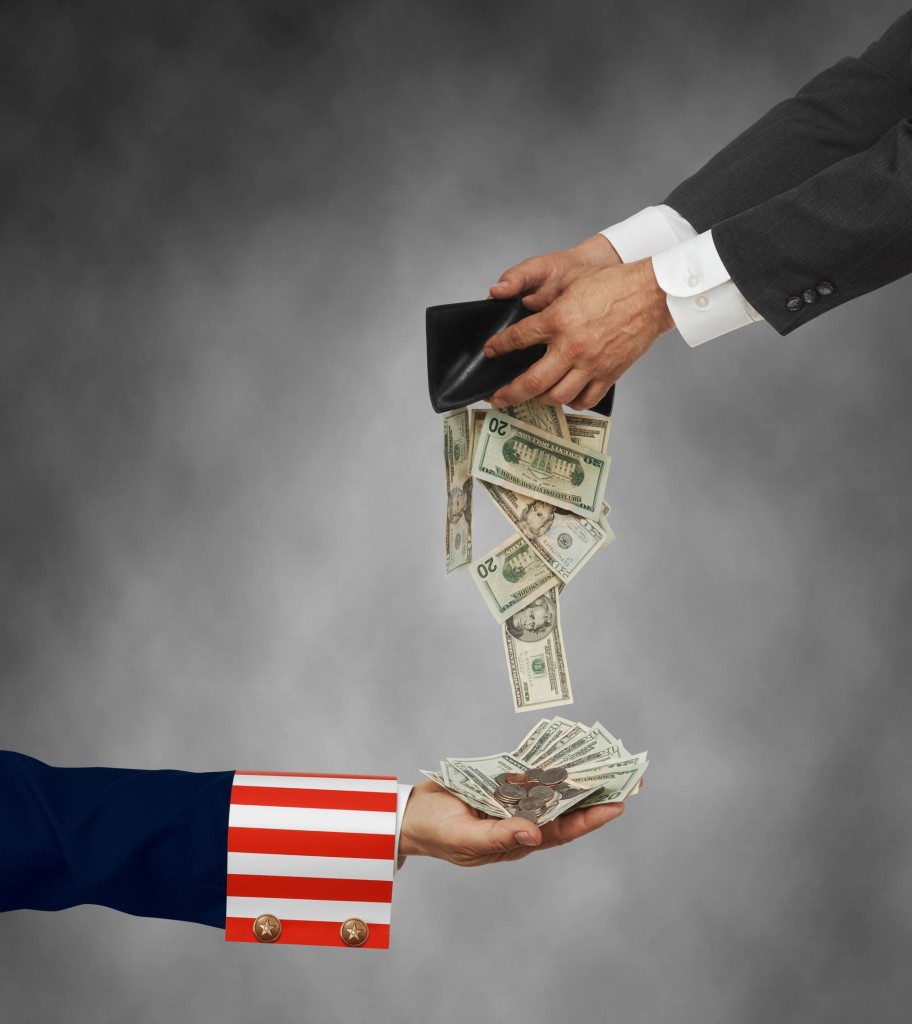 Take a look at how family is often presented in the media. What do we see? It’s a husband, a wife, two or three kids, and probably a pet. The grandparents, still happily married after all that time, stop by for Thanksgiving dinner, pie under their arms. Sounds like something right out of a Publix commercial. If Flintstones and the Jetsons are any indication, this family set-up has been around since the age of cavemen and will be the norm long into the future. Estate planning for such a family dynamic is quite straightforward. But is this family really the norm? With a national divorce rate hovering around 50%, probably not. In actuality, you probably don’t have the “perfect” family set-up of yesteryear’s media; instead, you need estate planning for your modern family. Since we all differences between our family structure, let’s look at some examples from everyone’s favorite Modern Family: the Pritchetts.
Take a look at how family is often presented in the media. What do we see? It’s a husband, a wife, two or three kids, and probably a pet. The grandparents, still happily married after all that time, stop by for Thanksgiving dinner, pie under their arms. Sounds like something right out of a Publix commercial. If Flintstones and the Jetsons are any indication, this family set-up has been around since the age of cavemen and will be the norm long into the future. Estate planning for such a family dynamic is quite straightforward. But is this family really the norm? With a national divorce rate hovering around 50%, probably not. In actuality, you probably don’t have the “perfect” family set-up of yesteryear’s media; instead, you need estate planning for your modern family. Since we all differences between our family structure, let’s look at some examples from everyone’s favorite Modern Family: the Pritchetts.
What would happen if Jay were to somehow die without an estate plan? Well, first, let’s first assume that the family has all moved from California to Florida between the seasons and is now domiciled here at the time of Jay’s death. If he has no will, not even one executed in California (Florida would recognize a validly executed out-of-state will), then the Florida intestacy statutes control how the estate assets are distributed. Since Jay would leave behind a surviving spouse and two kids from a previous marriage, his wife Gloria would receive half of the estate. The other half would go to Jay’s descendants in equal shares. How this remaining half of the estate would be divided depends on whether Jay adopted Gloria’s son from a previous marriage, Manny. If Manny has been legally adopted, then he is Jay’s child by law and can inherit. Otherwise, he would receive nothing. Assuming that Jay did adopt Manny, then Mitchell, Claire, Manny, and baby Joe would each receive an eighth of the estate. Intestate succession in Florida is “per stirpes” which means each decedent receives an equal share. How many children a descendant has does not affect the share he or she will receive. This means that if Claire passed away before Jay, her three kids would each receive an equal share of the eight she would have inherited. Mitchell’s daughter would receive his full eighth share.
But as we all know, Jay isn’t the type of person to let something as important as estate planning pass him by. Rather, Jay likely had an estate plan in place years ago, and has updated it with every major life event since (his remarriage, his son’s adoption of a child, his son’s marriage, and the birth of his new son). Jay, who built his company from the ground up, would likely want to protect and control his assets for as long as he could. Therefore, he would likely use a trust based plan for his estate distribution. A trust based plan would give him multiple advantages over a basic will. First, Jay would want to leave a great deal of money to his wife Gloria. However, Gloria is already on her 2nd marriage and is much younger than Jay and will not stay single for long. If she were to get remarried, a large portion of Jay’s assets could end up with her new husband. A trust fund would prevent anyone other than her and later her children from getting the money. Trust funds would also be the best way to give money to both of his minor sons. Jay could name the trustee of his choice to manage the assets until an age where each son is ready to become their own trustee, such as 25 or 30. Trusts would also allow Jay to give money to his two grown children, Claire and Mitchell, while protecting it from their respective spouses, who Jay is not the biggest fans of.
Claire and Phil, both successful businesspeople, likely have an estate plan in place as well to protect their three children. With two minor children, the couple would be smart to have guardian designations in their estate plan. The two of them would also likely follow Jay’s lead and have a trust based plan. Haillie has yet to show the necessary maturity to manage her own funds and her judgment with men could be described as questionable. Putting her inheritance in a trust fund and setting an age at which she would have full control over it will help to protect the funds while she becomes responsible enough. The same logic applies to their youngest son, Luke. While middle child Alex has demonstrated responsibility and maturity throughout her teen years, she is still a minor and would need a trustee to manage the funds until she becomes an adult. Phil and Claire could require that the children never get to control their own funds, putting a corporate trustee or even their lawyer uncle Mitchell in charge of distributing the funds. The use of trusts funds allows for maximum inheritance protection, but from outside creditors and from the beneficiaries themselves.
And what of Cameron and Mitchell’s estate planning? As a same-sex couple, estate planning is especially important. The couple was legally married in California, but Florida does not yet recognize same-sex marriage. Therefore, while the couple can receive federal benefits as a married couple, they do not receive any under state law and will not be viewed as married for state intestacy laws. Cam and Mitchell should follow in what is becoming a family tradition and use a trust based plan, though the reasoning is different for this couple. Wills must be probated in court before estate property can be distributed and are public documents. A trust is private; the court is not involved. Cam and Mitchell would be smart to avoid the risk of having their will in front of a conservative judge. Cam and Mitchell should use what is colloquially referred to as “I love you” trusts, where the decedent leaves everything to the surviving spouse, and down to their daughter Lilly. The trusts mirror each other, maximizing the ease of administration and assuring maximum protection for the beneficiaries. Cam and Mitchell’s estate plan should also name a guardian for Lilly, a minor, in the event that they both pass before she is an adult.
These are just a few of the many situations that can occur with today’s modern families, but it shows just how intricate estate planning can be. Just within this one family, three different approaches were used. Even though each family ended up in a trust based plan, each plan is different, personalized. And that is what you deserve. Don’t find yourself with an estate planning attorney who only cares about taxes, or one who will just cut and paste your name in a form he’s already used countless times.
For more information on successful Florida estate planning and asset protection techniques, please contact the South Florida law firm of Wild Felice & Partners, P.A. at 954-944-2855 to schedule your free consultation.
It’s a Wild world. Are you protected? SM





